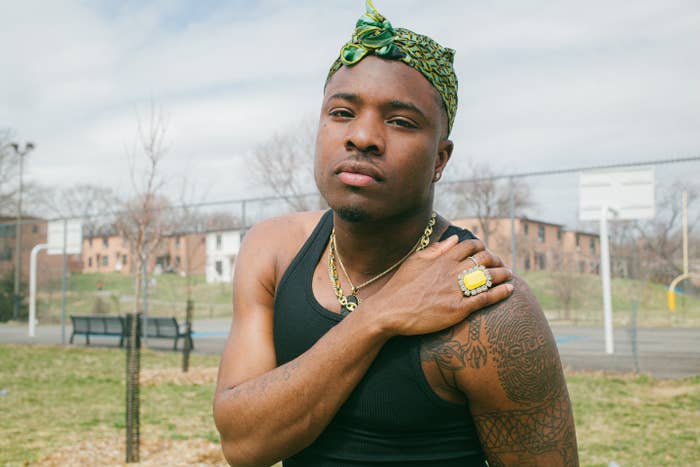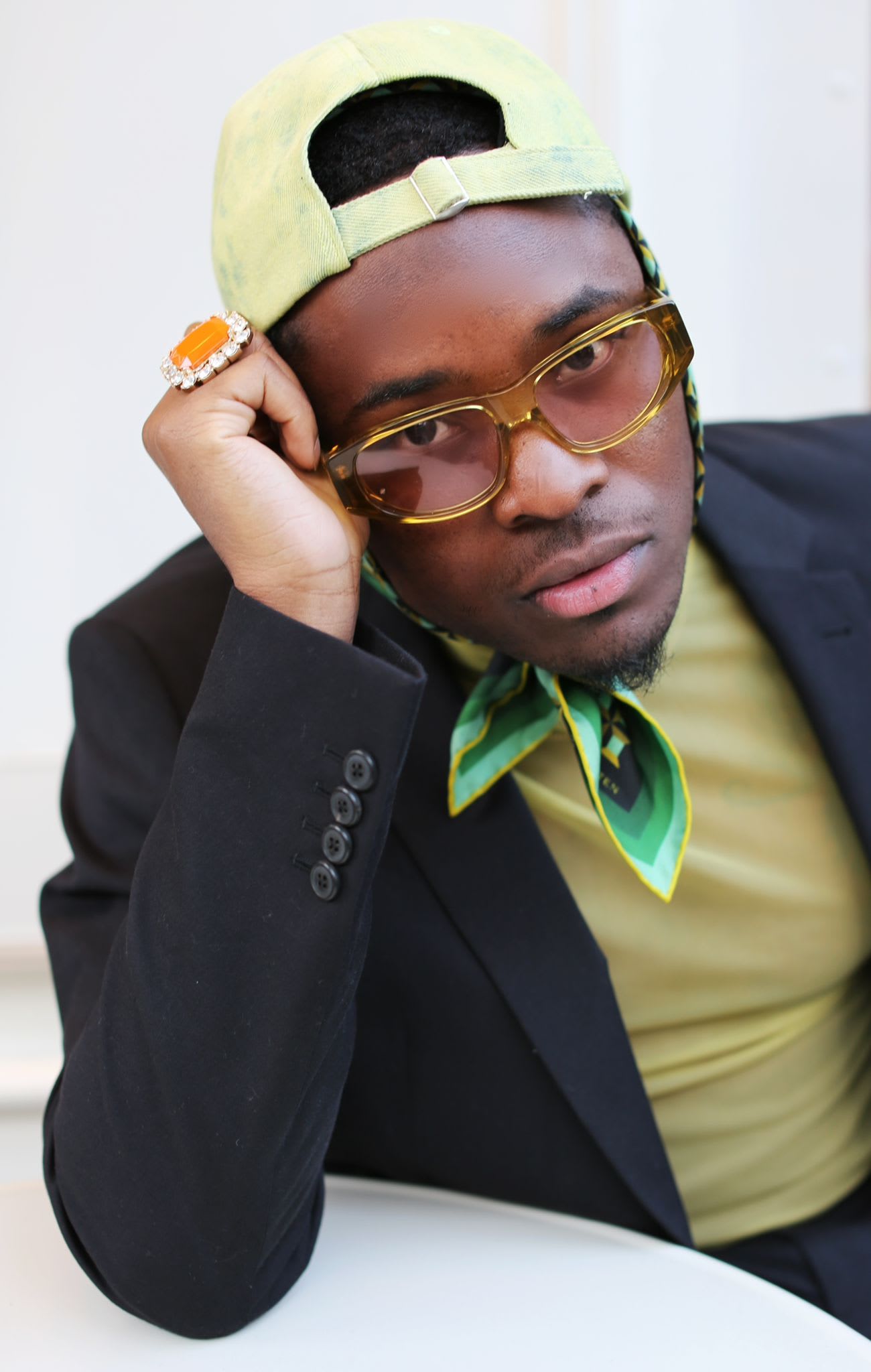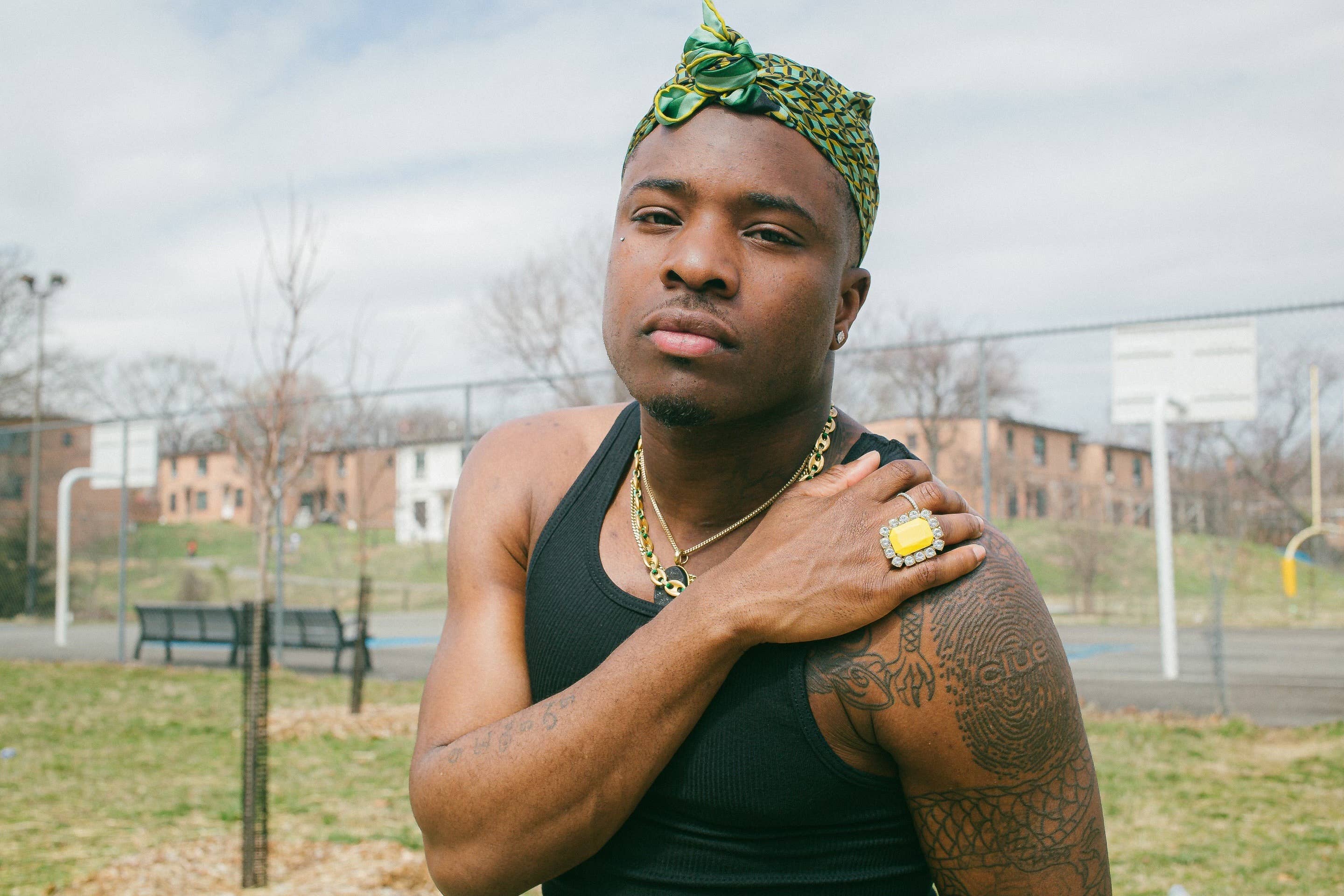
It’s early January when IDK touches down in Australia, who’s here to play his first Australian shows in Melbourne and Sydney. While it’s the new year, there’s been no period of standstill for the Maryland rapper; he’s launched himself straight back into work.
This seems to be the tone IDK has set this year. Although he’s at a point in his career where he could revel in some of the luxuries that a slow and steady grind of more than a decade in the game has afforded him, he refuses to rest on his laurels—his focus remains as sharp as ever.
IDK has been busy touring, shooting videos, and preparing for the next intake of his music business course at Harvard since the release of his last album, Simple. The album, released in May last year, thematically centres a public housing project in D.C called Benning Terrace, colloquially dubbed ‘Simple City’.
IDK grew up in a middle-class neighbourhood outside of Simple City, but spent time there often with his friends who lived there. As a body of work, Simple served as the telling of a complex web stories and experiences reflective of those who live in Simple City. In IDK’s own words, the project was intended to “teach the world that the fix to helping disadvantaged black communities isn’t as simple as you think.”
Not only did the project once more elucidate IDK’s ability to execute a seamless body of work with an intentional story arc, it also marked a diversion from the typical palette of sounds he works with by entrusting Grammy-winning producer Kaytranada to bring his revered electronic flavour to the project. On Simple, IDK returned with the same hard-hitting flows and soothing vocals, but this time they were layered over Kaytra’s mystifying production that blended funk, hip hop, soul and electronic.
His ability to skilfully adapt and apply himself to different soundscapes is one of IDK’s gifts, but there’s a sense with him that pushing the margins of his identity is not simply confined to his artistry—it’s an integral personality trait. His passions don’t start and end with music, and a core driver behind his many endeavours is doing and achieving that which others consider impossible.
Speaking to Complex AU, IDK discusses his evolution as an artist, adding feeling to rap, and teaching his No Label Academy course at Harvard.
Going back and listening to some of your earliest work, there’s a lot of reflection on taking the independent route, and the financial investment tied up in choosing to do things that way. In one instance, you reference the amount of money you’d spent to make your work look and sound good without the resources of a label.
There are plenty of independent, emerging rappers out there who are similarly investing a substantial amount of their personal finances into their music, without the guarantee of it becoming successful. Now that you’ve achieved a considerable amount of success, do you feel like that initial investment was worth it? Would you have taken a different route?
It was worth it, one hundred percent. I mean, I have a really comfortable lifestyle—I have a pretty comfortable life. I’m fortunate to be successful in music and do a lot of really cool shit and fun shit. I experience a lot of things that people will never get to experience. So I think that truthfully, it’s paid off one hundred percent times ten. It’s paid off to the point where even if I lost it all, I would still be happy.
You’ve mentioned previously that when you started making music, for a long time no one really cared about the music and you weren’t getting much recognition—but you kept making music anyway. Where did that intrinsic motivation come from? Why did you keep at it?
When you look at success, people equate success to accomplishments. The problem with that is that it’ll never stop, and you’ll always want to accomplish more. There will always be something more you feel you can obtain, and sometimes, that can be detrimental.
So I just gave myself until I’m 40, and at 40 I wish to retire. So I just want to go as hard as I can no matter what [level of success] I reach until then. I’m going to keep wanting more and trying for more until I turn 40-years-old, and then wherever I am at 40, that’s it. I’m not saying I’ll never do anything again, but whatever I do will be purely, solely just for fun. That’s what my goal is, just working as hard as I can until I’m 40.

What are you most proud of in terms of your evolution as an artist?
I’m most proud of the fact that I never gave up, and that I’m constantly obtaining things that people find impossible. It fuels me to continue to do more things that people find impossible, or obtain more things that people find impossible.
What’s one of the things you’ve achieved that people would’ve thought was impossible?
Probably figuring out how to design, curate and teach my class at Harvard—I think that takes the cake. That happened in 2021 and was meant to run again in 2022, but a partner of ours had to deal with some personal things, so we decided it was better to not rush the process, and do it again instead in 2023, which is about to happen.
What was the most rewarding thing about teaching the course?
Creating a platform that shows a certain group of people the possibilities and outcomes that can come from having crazy ideas—that’s probably the most fulfilling and rewarding thing. Oh, and making a lot of the older people and professors—who look at me like I’m just a rapper—realise that a young rapper can do multiple things, and to not underestimate the intelligence of somebody who doesn’t have the same educational background as you.

You’ve spoken before about it being harder for lyrical rappers to break. I think this is becoming increasingly accurate, particularly when considering all of the disruption and heaviness that’s permeated the last few years—a lot of people have just been looking for music that’s easy to listen to.
As someone who considers themselves a lyrical rapper, do you think that an appetite for lyrical rap is emerging again in listeners?
I think the problem with lyrical rappers is that they’re so focused on lyrics that they forget the importance of feeling. If lyrics are all you do, it’s very difficult. Like you gotta sing or something—do something that gives it feeling. When I listen to Griselda, it’s not even about the lyrics, it’s about how I feel, it’s about the things that they’re talking about and the things they embody. I like shit with feeling, so I tend to gravitate more to street artists like Rob49, and Boston Richey, and Gunna. All of that shit, that’s more so what I like, because it has feeling—it’s not all about technical ability.
On the point of finding ways to add feeling to rap, you can sing. Is singing something you’ve always been good at? Or more so something you’ve tapped into and developed over time?
I think I’ve always had an idea of what it takes, but overtime I’ve practiced and I’ve challenged myself. I still think there’s a lot more work to do, but I’m grateful that I’m even where I am, because I’ve listened to earlier songs like “December” and I see how I can perform that vocally a lot better now.

To finish up, there’s a lot of noise in hip-hop. If you had to speak to what makes you distinct as an artist and what’s special about you, what do you want people to know?
I think I’m purely a reflection of the serpentine life that I’ve had. I was born in London to African parents, one from Ghana and one from Sierra Leone, came to America when I was two, grew up in Maryland, lived in Pittsburgh for a little bit and then came back to Maryland, was in and out of different schools, came from a middle class home but lived in the hood, went a to bad school, was in prison and in college in the same year, [became] a rapper who also teaches a class at Harvard—and all of it makes sense and it’s real. My music is a reflection of all of that. So when you listen to one of my albums, there’s a multitude of different vibes, and I think that my art is mastering bringing together a collection of thoughts and vibes and genres in one album and making it cohesive. So I think that’s what separates me. There’s no other artist—especially in rap—that does that. That’s my art.


